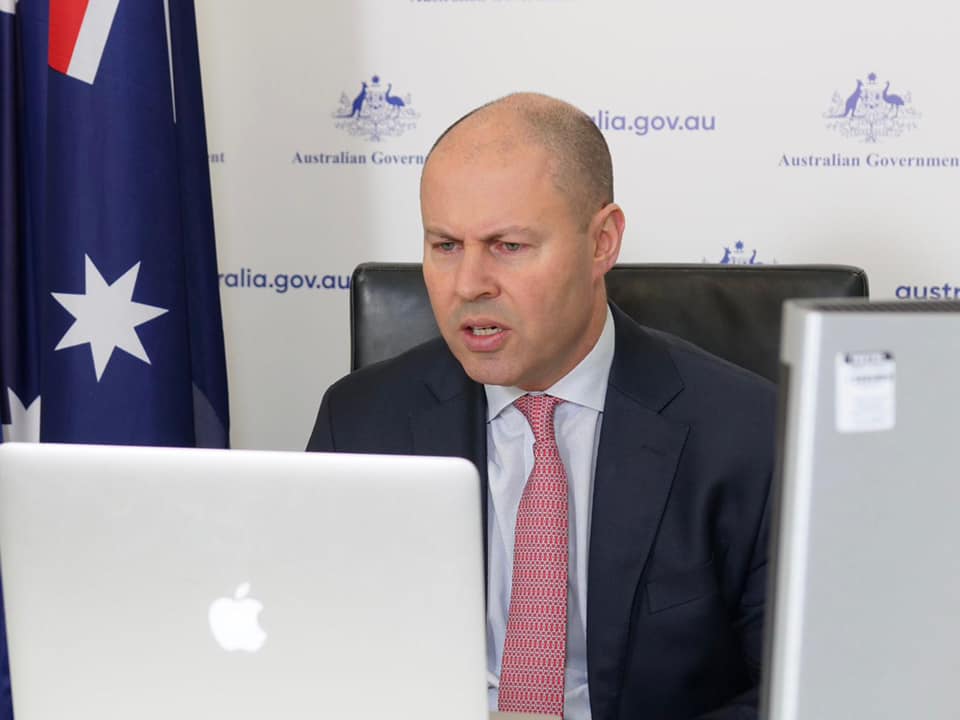The 2022-2023 Federal budget (the budget) is in, but it’s not in tune with reality. Not only does the Morrison government think a splash of cash in the form of a small handout against the rising cost of living won’t be construed by voters as a paltry bribe, but the budget has little to offer the transition to renewable energy.
When the Morrison government finally announced its 2050 net-zero emissions target before the COP26 climate summit in Glasgow last year, few believed Morrison’s administration was taking the energy transition with any seriousness. This new budget proves it.
The budget provides no major promises for how Australia will reach its 2050 net zero emissions target, nor does it provide any increased support for renewables uptake or the electric vehicle (EV) industry. What the budget does offer is $247 million over five years for the private sector to invest in hydrogen, $148 million for “microgrid projects” in regional areas, and $50 million for gas infrastructure.
Indeed, according to The Guardian, the budget papers show a reduction in spending across clean energy agencies (including the Australian Renewable Energy Agency and the Clean Energy Finance Corporation). Nor is this reduction insignificant, representing a 35% annual cut over four years.
Economist Nicki Hutley, a member of the Climate Council who was in yesterday’s budget session, calculated that just 0.3% of total expenditure for 2021-2024 has been committed to climate change initiatives, falling even lower, to just 0.2% in 2024-2026. Hutley said much of that 0.3% was already committed, and that the 2022-2023 budget adds ‘virtually nothing’.
“Rather than investing in a green economic future, the Federal Government has used tonight’s budget to toss mere pennies at genuine emissions reduction initiatives, such as regional renewable microgrids,” said Hutley. “At the same time, significant funds are being spent on so-called ‘low emissions hydrogen’ and the costly and unproven carbon capture and storage.”
“Ironically,’ continued Hutley, “while proposals for action on climate change are almost non-existent, the costs of climate-fuelled natural disasters are stark and mounting.”
In his federal budget speech, Treasurer Josh Frydenberg said “Australia is on the pathway to net zero emissions by 2050, and playing its part in responding to the critical global challenge of climate change.” Like his colleagues Energy Minister Angus Taylor and Prime Minister Scott Morrison, Frydenberg leaned on the false dichotomy with which the Coalition excuses its lack of action on climate change or renewables and its propping up of the oil and gas industry, namely: “Technology not taxes will get us there.”
Clean Energy Council (CEC) chief executive, Kane Thornton, stressed the importance of funding for the energy transition at this critical juncture. “Significant investment is required in the National Electricity Market and network to make this transition happen safely and smoothly,” said Thornton. “A 21st-century economy needs a modern electricity network that supports reliability, security and low-emissions technologies and delivers low-cost energy to consumers.”
And yet, as Thornton points out: “Tonight’s Federal Budget fails to look to the medium-to-long term future through an all-important lens of reducing the emissions that are having a devastating impact on the climate, the environment and on the lives of everyday Australians.”
“The lack of transmission investment is now one of the most critical challenges facing Australia’s energy industry,” continued Thornton. “Instead, yet another Federal Budget has prioritised the fossil fuel industry when Australia’s bottom line should be focused providing a better future for communities through clean, low-cost renewable energy and storage.”
The CEC was also quick to point out that the budget’s cut to fuel excise is at best a minor temporary measure, and the budget should’ve provided funds for the electrification of transport.
“The transport sector accounts for nearly 20% of Australia’s emissions. The Federal Government’s own target is for 30% of all new car sales being electric by 2030, and tonight’s Federal Budget doesn’t get us any closer to that target,” said Thornton.
Clearly, the 2022-2024 budget has been focused entirely on keeping the Coalition in power at the coming election and entirely indifferent to its much-belated 2050 emissions target. In so doing, not only is the Morrison government condemning the country to the effects of the climate crisis, already keenly felt by many, but also condemning the economy to falter on the precipice of the green industrial revolution.
This content is protected by copyright and may not be reused. If you want to cooperate with us and would like to reuse some of our content, please contact: editors@pv-magazine.com.









By submitting this form you agree to pv magazine using your data for the purposes of publishing your comment.
Your personal data will only be disclosed or otherwise transmitted to third parties for the purposes of spam filtering or if this is necessary for technical maintenance of the website. Any other transfer to third parties will not take place unless this is justified on the basis of applicable data protection regulations or if pv magazine is legally obliged to do so.
You may revoke this consent at any time with effect for the future, in which case your personal data will be deleted immediately. Otherwise, your data will be deleted if pv magazine has processed your request or the purpose of data storage is fulfilled.
Further information on data privacy can be found in our Data Protection Policy.